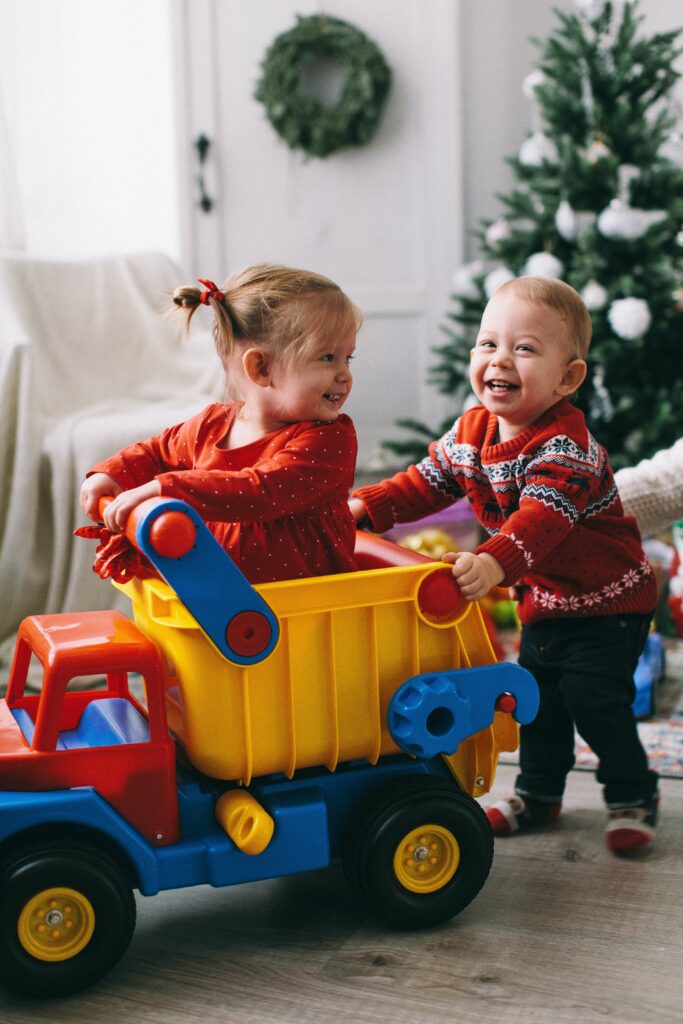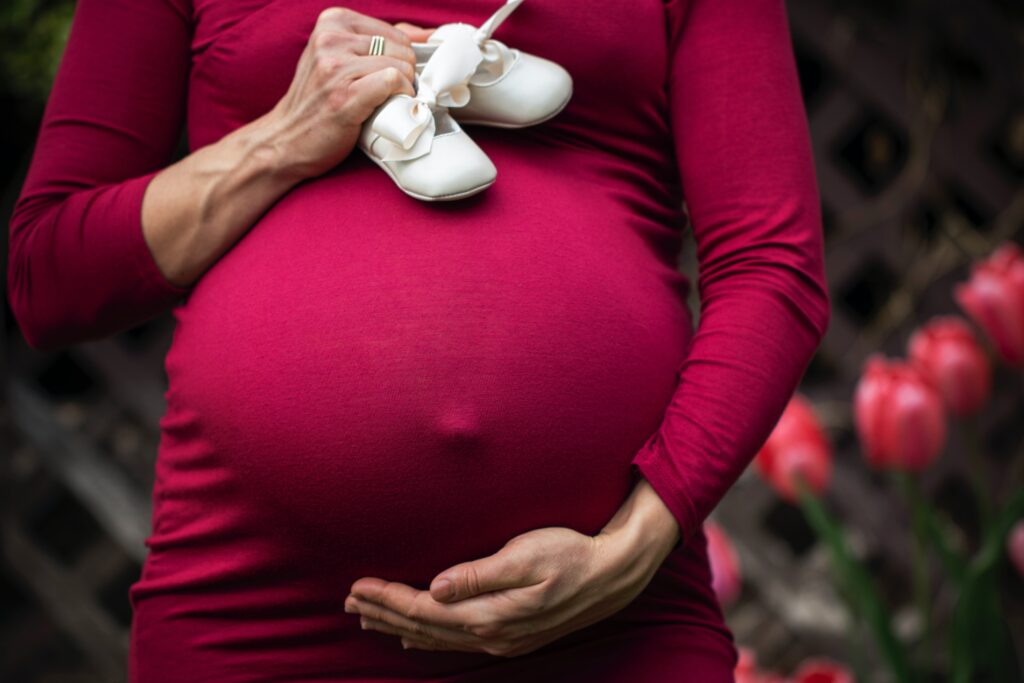
Having twins is a unique and extraordinary experience that many parents dream of. Raising twins can be an emotional rollercoaster from double the joy to the challenges. While the idea of having two little ones running around the house may seem idyllic, the reality often presents a mixture of ups and downs. In this article, we’ll explore the best and worst aspects of having twins, shedding light on the joys and challenges that come with this extraordinary journey.
Twin Pregnancy Symptoms

Twin pregnancies can be associated with unique symptoms and challenges compared to singleton pregnancies. While not every woman will experience the same symptoms, here are some common signs and symptoms of a twin pregnancy:
- More Severe Morning Sickness: Morning sickness (nausea and vomiting) tends to be more pronounced in twin pregnancies. This can lead to increased nausea and vomiting, often referred to as hyperemesis gravidarum.
- Increased Fatigue: Expect to feel more tired than usual during a twin pregnancy. This is because your body is working harder to support the growth of two babies.
- Rapid Weight Gain: Weight gain in a twin pregnancy can be more rapid compared to a singleton pregnancy. You may notice your belly expanding more quickly.
- Larger Abdominal Size: Your abdomen may appear larger than expected for the gestational age due to the presence of two babies.
- Increased Appetite: Many women carrying twins report feeling hungrier than usual. Your body is working hard to provide nourishment for both babies.
- Frequent Urination: As your uterus expands to accommodate two babies, it can put extra pressure on your bladder, leading to more frequent trips to the bathroom.
- Stronger Fetal Movement: You may feel more intense fetal movements earlier in a twin pregnancy. This is because there are two babies moving and kicking.
- Higher Risk of Certain Pregnancy Complications: Twin pregnancies tend to have a higher risk of certain complications, such as gestational diabetes, preeclampsia, and preterm birth. Monitoring for these conditions is essential.
- Increased Discomfort: Expect more physical discomfort, especially as you progress further into the pregnancy. Backaches, leg cramps, and pelvic pain are common.
- Shortness of Breath: As the pregnancy progresses, the growing uterus can press against your diaphragm, leading to shortness of breath.
- Swelling: Swelling in the feet and ankles (edema) is common in twin pregnancies due to increased fluid retention.
- Varicose Veins and Hemorrhoids: The added pressure on your blood vessels can increase the risk of developing varicose veins and hemorrhoids.
- High Levels of hCG: Higher levels of human chorionic gonadotropin (hCG), a hormone produced during pregnancy, are often detected in the blood or urine of women carrying twins.
It’s important to remember that not all twin pregnancies will have the same symptoms, and some women may experience a mix of these symptoms to varying degrees. Regular prenatal care and monitoring by your healthcare provider are crucial to ensure a healthy pregnancy for both you and your babies. If you suspect you might be pregnant with twins or have concerns about your symptoms, consult with your healthcare provider for a proper evaluation and guidance.
How Is Having Twins Genetic?
The occurrence of twins can indeed have a genetic component, but it’s important to clarify that it’s not solely determined by genetics. Twin births are influenced by a combination of genetic and environmental factors. Let’s delve into this further:
- Family History: If you have a family history of twins, particularly on the maternal side, your chances of having twins may be higher. This is because hyperovulation, the release of multiple eggs during ovulation, can be genetically influenced. If your mother or grandmother had fraternal (dizygotic) twins, you might have an increased likelihood as well.
- Race and Ethnicity: The occurrence of twins can also vary by race and ethnicity. For example, women of African descent tend to have a higher incidence of twins compared to women of Asian descent.
- Age: The age of the mother can play a role. Older women, specifically those over 30, are more likely to release more than one egg during ovulation, increasing the chances of having fraternal twins.
- Number of Previous Pregnancies: Women who have had multiple pregnancies before may have a slightly higher chance of having twins. This could be due to changes in hormone levels and ovulation patterns after multiple pregnancies.
- Diet and Lifestyle: Some studies suggest that diet and lifestyle factors, such as consuming a diet rich in dairy products, may slightly increase the chances of having twins. However, the evidence is not conclusive, and these factors are likely to interact with genetic predispositions.
It’s important to note that identical (monozygotic) twins, which occur when a single fertilized egg splits into two embryos, are not thought to have a strong genetic basis. They are largely considered a random event.
While genetics can contribute to the likelihood of having twins, it’s only one piece of the puzzle. Environmental factors, maternal age, and other variables also play crucial roles. If you have a strong family history of twins and are interested in understanding your own chances of having twins, it’s advisable to consult with a medical professional or genetic counselor who can provide personalized information and guidance based on your specific circumstances.

The Best Parts of Having Twins
1. Double the Love and Joy
One of the most obvious and heartwarming aspects of having twins is experiencing double the love and joy. Watching two little souls grow and bond together from birth is an unparalleled privilege. Twins often share an unbreakable connection, offering parents an abundance of adorable moments and heart-melting interactions that are sure to warm the soul.
2. Built-In Playmates and Lifelong Friendship
Twins have an extraordinary built-in playmate from day one. Their shared experiences create a unique bond that often translates into a strong and lasting friendship throughout their lives. Witnessing the development of a twin’s relationship is a remarkable journey for parents as they support their children in forging a friendship that can withstand the test of time.
3. Efficient Learning Experience
Raising twins can be a fast-track learning experience for parents. Handling two babies at once demands greater organization and multitasking skills. This challenge can lead to increased parental efficiency as caregivers quickly adapt to juggling the needs and schedules of two individuals. These acquired skills can be valuable in other aspects of life, including time management and problem-solving.
4. Supportive Siblings

Twins often have an innate understanding of each other’s struggles and triumphs. As they grow older, they can provide vital emotional support to one another during challenging times. This support can help foster a sense of security and confidence in each child, knowing they have a constant companion to rely on.
The Worst Parts of Having Twins
1. Exhaustain and Sleep Deprivation
One of the most significant challenges faced by parents of twins is the constant state of exhaustion. Twins may not sync their sleep schedules, leading to interrupted nights and a severe lack of rest for parents. Sleep deprivation can take a toll on physical and emotional well-being, making it essential for caregivers to seek help and rest whenever possible.
2. Financial Strain

From diapers to clothes and education, raising twins can be financially demanding. The cost of supporting two children simultaneously can be daunting, requiring careful budgeting and planning. Parents must be ready to make sacrifices and prioritize spending to ensure both twins receive the care and resources they need.
3. Individual Attention
Though twins share a unique bond, they are still individuals with distinct needs and personalities. Providing each child with the attention and support they require can be challenging, especially during demanding times. Balancing individual attention while nurturing their shared bond is a delicate task that demands patience and understanding.
4. Comparison and Identity Issues
Twins may face constant comparisons, both from others and within themselves. This can lead to identity issues and feelings of competition, affecting their self-esteem and sense of individuality. As parents, it’s essential to celebrate each twin’s uniqueness and ensure they have opportunities to explore their interests and passions independently.
Conclusion
Having twins is an extraordinary journey with both incredible joys and significant challenges. From double the love and friendship to the exhaustion and financial strain, raising twins demands a lot from parents. While the experience can be demanding, the rewards are immeasurable, and the bond between twins is a lifelong gift. By embracing the best parts and navigating the worst with patience and understanding, parents of twins can create a loving and supportive environment for their remarkable duo to thrive.
Recent Posts
Having twins can be scary, overwhelming, and hard. But, it's also beautiful, fun, and adorable! Let's focus on the positives with these cute and funny stories about raising twins. Comment which one...
Newborn photography is a beautiful way to capture the fleeting moments of your baby’s earliest days. These precious photos become cherished keepsakes, encapsulating the joy and tenderness of...
